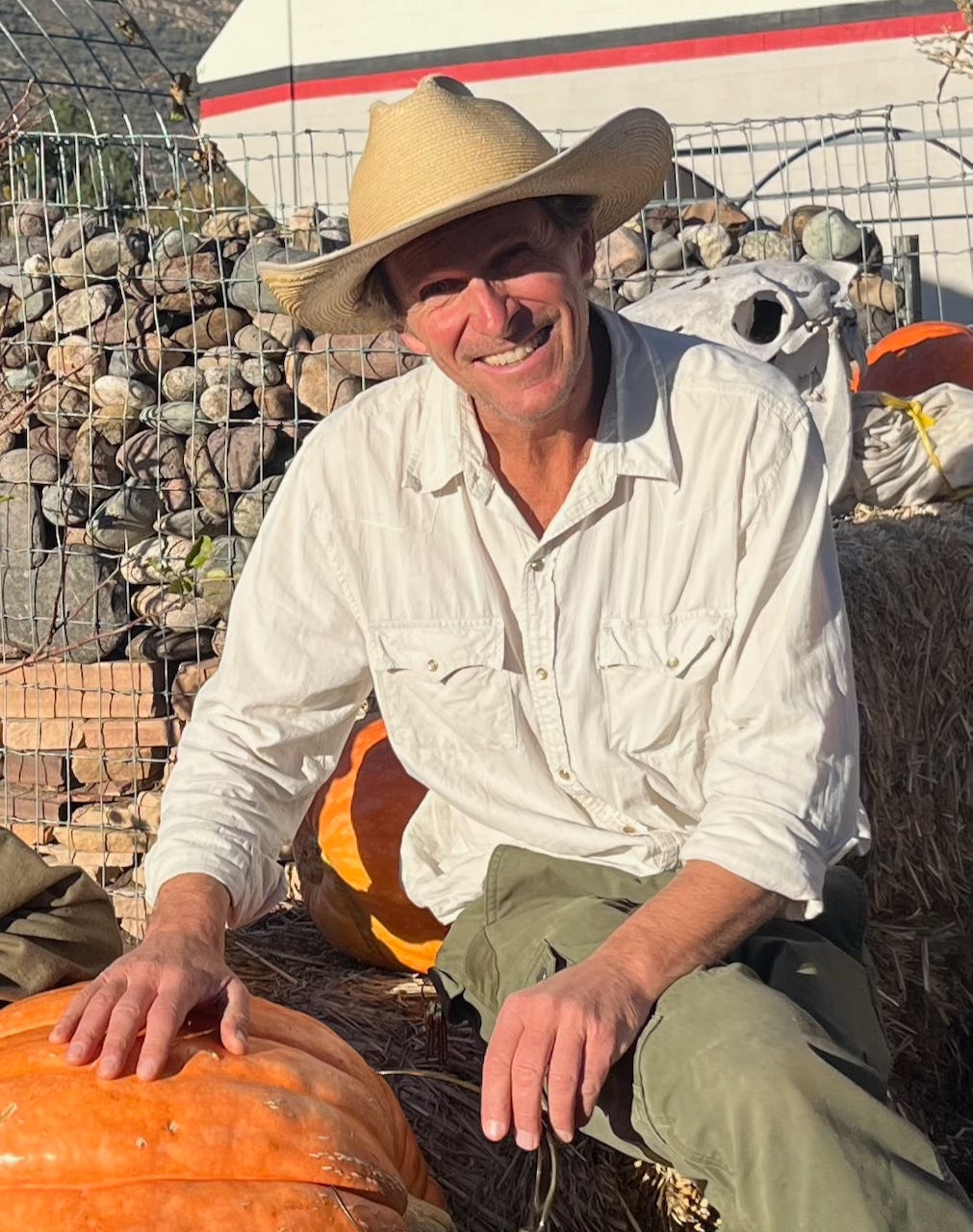
I want to introduce a new writer to Cento, my friend John Taylor, who I have known since Mrs. Willis’ algebra class in the eighth grade.
I’d never met a boy I considered a person before I met John. He wasn’t rambunctious or crude, mean-spirited or aggressive. But he wasn’t super flirty either, this skinny kid who ran cross country, a physician’s son with a mop of curly hair and blue eyes. Instead, we spent every math class engaged in conversations about—what? What did we talk about? I don’t remember a thing except that for me, algebra wasn’t intuitive, and my inattention meant that I fell further and further behind. But to him? Math was something you could learn by yourself at night from a book. And he did fine.
I told him this story a few months ago at a barbecue: “I never knew that!” he said. “I thought we both did fine.”
In a turn of events, John currently teaches high school math. He’s also a writer, gardener, and founder of Terra BIRDS, a nonprofit that works with youth to transform school grounds from concrete-and-cinder lots into gardens and habitats. After that barbecue, I asked if he wanted to write with me. In a way, it’s an extension of our eighth grade conversations, but it’s also an invitation to deepen and expand reflections on process and transformation—how we collectively work, how we create, how we move through the world. Who we choose to be.
As much as we are similar, John’s life and obsessions are different from mine, and his perspective and subject matter will be a wonderful complement. He studied the history of art at Yale, then earned a master’s degree in business administration from UT-Austin. Before entering the nonprofit and education sector, he worked as a landscape and ecological restoration contractor. He’s also a proud father, an engaged family member, and deeply committed to the well-being and sustainability of his community in northern Arizona.
He’s gonna green up the place, and perhaps teach us how to FOIL.
There’s nothing worse than someone explaining why a joke or a sketch like “The Janitor” from SNL is funny. Maybe it’s because I’ve been contemplating my own math education, but I really sort of loved this stupid and gross parody of Good Will Hunting that aired Nov. 9, the Saturday after the US presidential election. The Boston accents, Michael Longfellow’s Matt Damon bowl cut and his big innocent eyes, and the spot-on Robin Williams impression—hilarious.
“It’s cah-pet Donny, you don’t mop cah-pet!”
“All you’re doing is soaking it into the fi-bahs, Donny. We got pah-dah for that kid. We got bahf pah-dah.”
I watched this sketch a few times a day last week, and kept my eye on the views as they ticked up to 2 million-plus. So it wasn’t just me: there was something culturally relevant about the braided conversation between the academics and the janitorial staff, though I couldn’t put my finger on exactly what. Then, I got it. Indirectly, it was the most political sketch of the night.
Over the years, there’s been a realignment between how people with and without college degrees vote. This was “a fault line that didn’t used to be a big deal in American politics,” Ari Shapiro said on All Things Considered on Oct. 22 (which, a few weeks later, reads like it was pulled from a time capsule.) “The Janitor” captured the “diploma divide” perfectly, without mentioning it once.



Thank you, Steph, for the warm welcome to join the Cento community.